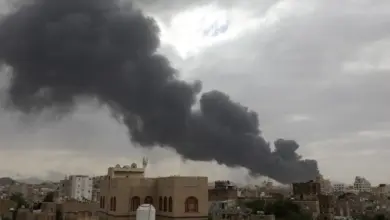
Humanitarian aid has reached the embattled city center of Taiz in Yemen for the first time in months, the United Nations said on Tuesday, following negotiations to allow supplies into the area described as being on the brink of famine.
A convoy of trucks carried blankets, mattresses and emergency supplies for 1,000 families living in an isolated enclave in Yemen's third largest city who have been cut off amid months of fighting, the UN High Commissioner on Refugees said.
Taiz, a city of more than 200,000 people that is considered Yemen's cultural capital, has been hard-hit in the fighting in which local militias and forces loyal to a Saudi-backed government ousted by Houthi rebels last March are seeking to fight their way back to the capital Sanaa.
The UN's World Food Programme said on Monday that Taiz governorate, where Taiz city is located, was on the brink of famine.
Three weeks of negotiating with warring parties allowed for UNHCR's convoy to enter Taiz, said Johannes Van Der Klaauw, UNHCR's representative in Yemen, who led the distribution mission.
"I saw with my own eyes when we distributed the blankets and the mattresses and the buckets that the people had been waiting for months and were extremely happy, but also I saw in their faces how much this was needed," Van Der Klaauw told the Thomson Reuters Foundation in a telephone interview from Yemen.
He said the aid deliveries to Taiz must continue. "The conditions here are deteriorating," he said.
In recent days, the International Committee of the Red Cross, the World Health Organization and the WFP also have scrambled to deliver supplies ranging from oil and sugar to trauma kits to the newly accessible city.
Four in five residents of Yemen, or 21.2 million people, currently require some form of humanitarian protection or assistance as a result of the nearly one-year old civil war, according to the United Nations.
Since mid-March, a military coalition led by Saudi Arabia has been fighting the Iran-allied Houthi group in the Arabian Peninsula nation, with hundreds of air strikes.
Around 6,000 people have been killed in the conflict, about half of them civilians.



